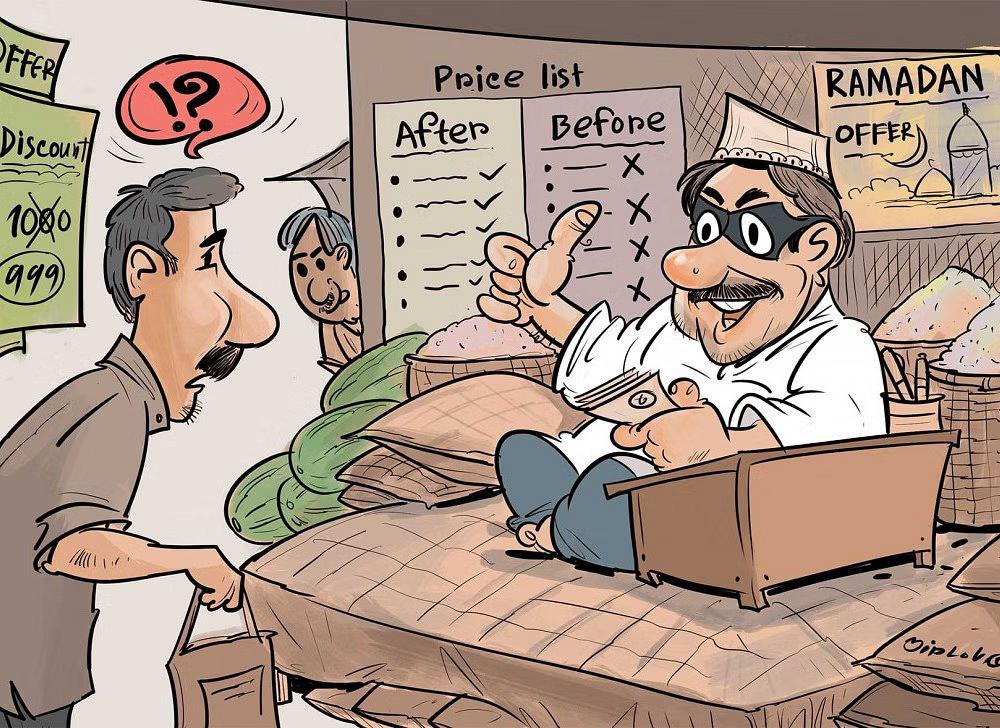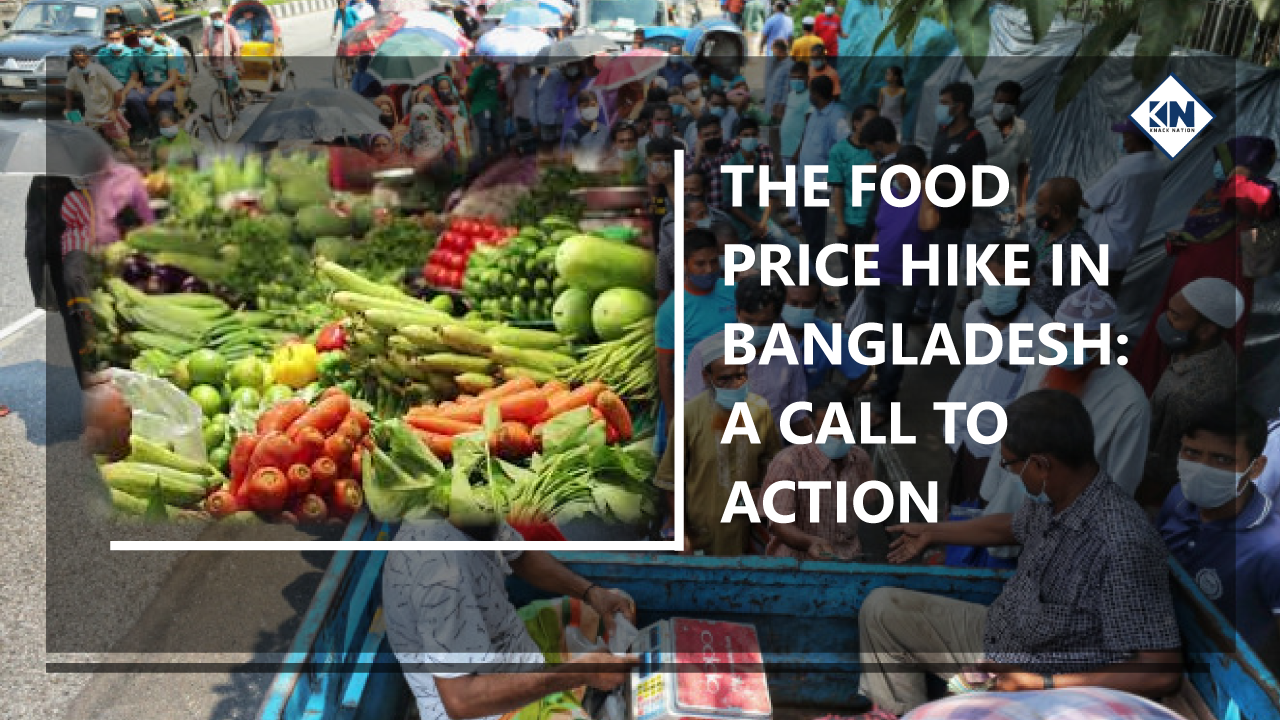The Food Price Hike in Bangladesh: A Call to Action
by Tazrian Rahman
Bangladesh, a green country with fertile land and an abundance of agro-based food items, where all of its people are well-fed and have plenty of food supply for everyone- that’s how it was supposed to be right? or that’s what it was in the previous century. Then why our country is at the bottom of the world hunger index? Or why is it the line behind TCB trucks grows longer each day?
There are many factors that are contributing towards such price hikes in the food items especially the food grains like rice, pulse, or wheat. One of the main reasons is market manipulation. Wholesale buyers who have the ability to buy in bulk, purchase large quantities of food and hoard them until their supply is shortened. Which drives up the prices of food items.

Credit : BIPLOB CHAKROBORTY
Illegal Hoarding
This applies to large companies like the Kazi Farms Egg controversy. Bangladesh Competition Commission filed accusations against 10 poultry enterprises and poultry-related groups for colluding to drive egg prices up. They allegedly bid higher to enhance market prices. People couldn’t find eggs at the customary price because of this shortage elsewhere. Market Experts believe local production data inconsistencies or manufactured supply shortages are to blame for rising inflation.
Corruption
The government tries to help marginalized groups by giving subsidies through the Trading Corporation of Bangladesh (TCB). However, the problem of corruption within TCB has big effects. There are more and more examples of bad management, like manipulating product levels and registering people who are not who they say they are. These unethical practices change the way the subsidy system is supposed to help, which makes food prices in Bangladesh go up.
Supply Chain Disruption Factors
Bangladesh has a poor infrastructure in the transportation field, which has been contributing to the rise in food price hikes. Bangladesh is mainly made up of rural areas, and almost all of its agro-based domestic food products originate from these rural areas and are later delivered all around the country. As most of the products are perishable the mobilization of these items should be as quick as possible, but due to underdeveloped infrastructure, the carrying cost of these goods suppresses the price of the raw materials when the goods reach the final consumer.
Fuel Crisis and Extortion
The price hike of fuel has increased the overall costs of transportation in every relevant field. Moreover, factors like extortion on the highway (as claimed by the traders; source: the business standard) contribute to the final cost of the products. For these reasons, the real producers sell their produced materials at a lower rate and get undervalued for their work, on the other hand, the final consumers usually have to purchase items at a much higher rate. Farmers here are oppressed as they don’t get much value for their items and only get a marginal profit, on the contrary, the consumers have to purchase at a much higher rate, and most of the profits go to the mediators.
Indirect Influence
Price hikes in basic food grains also push other non-food items to reach their own peak price as foods are the fundamental needs of humans and people also need to push up their income to satisfy their needs. But the saddening part is the incoming isn’t increasing as much as the price hike, as Bangladesh is currently battling with a food inflation rate of 12.54 percent, the highest in 13 years.
But there are also some lights of hope in this dire situation as the government has taken some initiatives to take control of this matter by introducing a new food and interest rate act, moreover, the public seems to become more cautious in this matter. The food grain price hike in Bangladesh is a challenge, but it is also an opportunity to build a more resilient and sustainable food system. Now the time will tell whether we will be able to see the “Sonar Bangla” once again or not.



